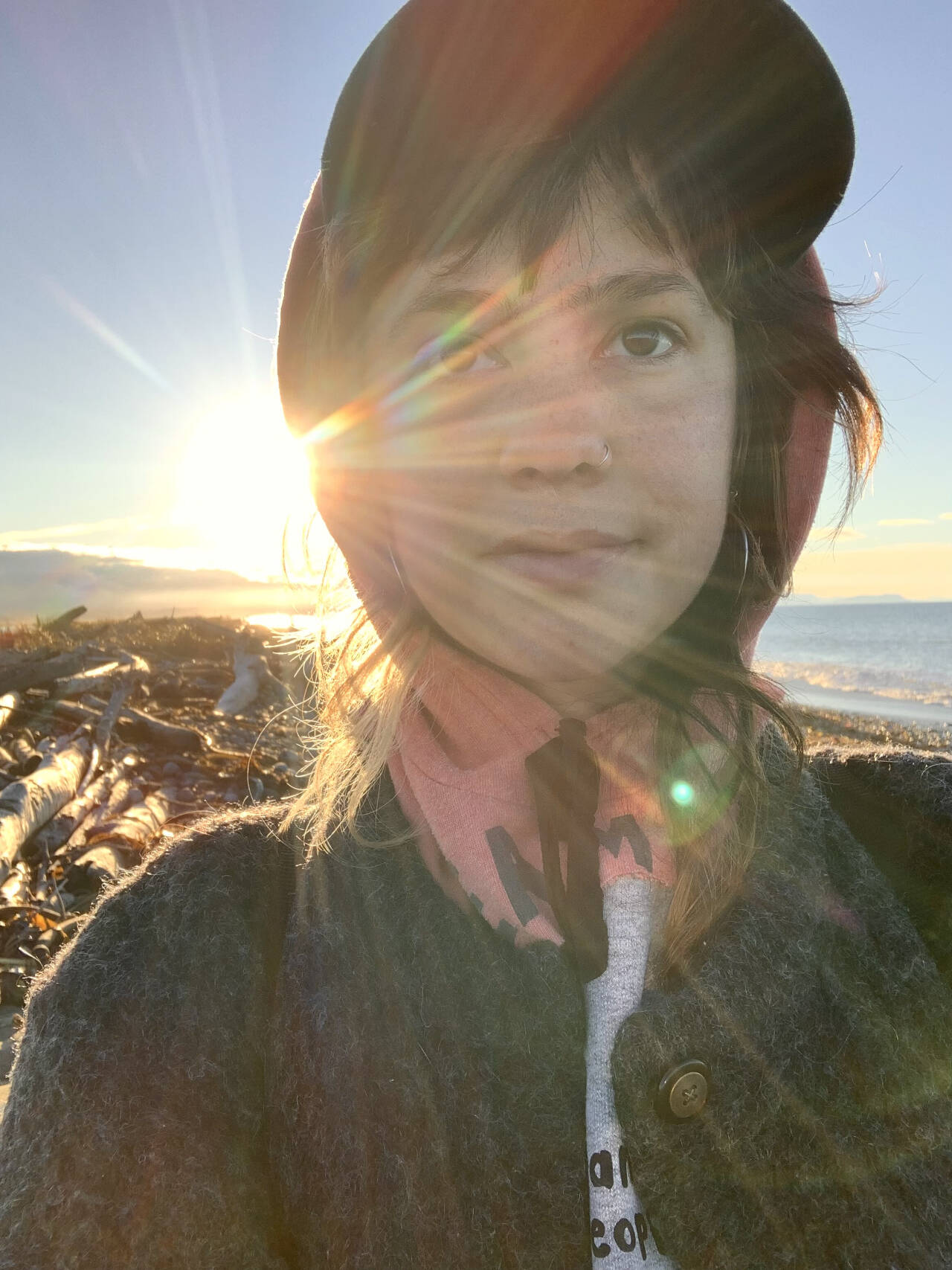“Talking about death,” said Sarafina Landis, “brings people more into presence with being alive, the finite time we have while we are alive, and how to make the most of it.”
Landis is the Sequim facilitator for the Volunteer Hospice of Clallam County’s “Tea to Die For,” part of an international movement called Death Café.
At a Death Café, organized by a local community member or organization, people gather to share their thoughts about, and experiences of death, while enjoying cookies or cake and tea.
The Sequim “Tea to Die For” is held the second Monday of each month at KSQM 91.5 FM, 609 W. Washington St. (Unit 17).
The Port Angeles “Tea to Die For” meets every fourth Wednesday at 4p.m. in the craft room at the Senior and Community Center, 328 E. Seventh St. Tea, coffee and cookies will be served. The groups are free and open to all.
Meetings are one hour long in both Sequim and Port Angeles but organizers planning to expand them to one-and-a-half hours (4-5:30 p.m) starting in January, Raffinpeyloz said.
“We gather at the radio station, eat snacks, drink tea and talk about death,” said Landis, noting that they offer allergen-free and low-sugar snacks.
“The host brings the food,” said Landis. “It brings people together in a casual way, a fun way. We share space and open up conversation.
“This is not a grief support space, simply a conversational space, where people can talk freely about death … Any and all thoughts and conversations about death fit into this space.”
Landis said that about eight to 10 people show up each time, and that people often return.
Said Landis, “I think a big intention for the these conversations is to allow people to lean into and discover that getting closer to death liberates people from the fear around it.”
Astrid Raffinpeyloz, volunteer services manager at Volunteer Hospice of Clallam County (VHOCC) said Death Café events are part of the organization’s Soul Care program, developed last year to encourage conversations around the end of life.
“Having been involved with hospice for over 25 years, I keep in touch with new developments and have known about Death Cafés for many years,” Raffinpeyloz said, “almost since the movement started in 2011 with Jon Underwood in England.”
The Sequim Death Café started in June 2022.
Landis is “very knowledgeable, sensitive, and aware,” Raffinpeyloz said.
One Death Café participant, who said she prefers to remain anonymous, said the groups feel like “a community” and likens the experience to an Alcoholics Anonymous meeting.
“When you go to an AA meeting you’re comfortable immediately because you’re the same as everybody else there; the Death Café is like that,” she said. “Nothing you say there will be taken wrong. You can go there and say anything you want about death and no one is going to be horrified by it, and other people have interesting things to add. So it kind of feels like a community to me.”
Said Landis, “I think that it’s been normalized to not talk about death, and there’s this stigma that talking about it will bring us closer to it. That getting closer to it will bring it about somehow, even though it gives one agency, empowerment, around their own death or the deaths of people close to them.”
Raffinpeyloz said she sees society in two groups: those willing to address death because they are curious or realize there is so much to be gained from understanding more about the end of life, and those afraid to even broach the subject.
“Death has become a very medicalized affair, where bodies are hidden from view … and rituals started to disappear also,” she said.
“There seems to be a tendency also to not hold ceremonies, whether a funeral or a memorial service: these gatherings are important in a community and they play a big role in the grieving process as it is an acknowledgement of an inescapable reality: a person has died and is no longer, on the physical plane, a part of a family or community.”
Said Landis, “That’s the complex thing about grief – there’s no romanticizing the very real tragedy surrounding someone who is beloved to us not being alive.
“It brings us into this distilled essential place in our lives where the things that are most important to us are clear.”
In Port Angeles, two volunteers — Kelly Sanderbeck and Carolyne Depperschmidt — take turns or sometimes host together, Raffinpeyloz said.
“I find our group energizing, from folks in their 20s to their 80s,” Sanderbeck said. “Lots of different perspectives and ideas seem to flow organically each time.
“Women tend to dominate, so we always welcome more men for their thoughts! We all love that we’re normalizing the discussion of death, so it’s not so scary to contemplate. Just like the coming and going of the seasons … ”
Said Depperschmidt, “I enjoy the informal format because each person can take part in guiding the discussion. We have shared our thoughts from varying points of view, for example: considering deaths of our loved ones and preparing for our own deaths.
“To me death is a life event that shouldn’t be feared, but accepted, revered, and honored. I hope I can share my attitude of acceptance as a way of easing the worry of others as they prepare for that part of their journey.”
Worldwide, Death Café has offered 14,912 events/programs in 82 countries since September 2011, according to deathcafe.com.
“We’ve established both that there are people who are keen to talk about death and that many are passionate enough to organise their own Death Café,” the website notes.



